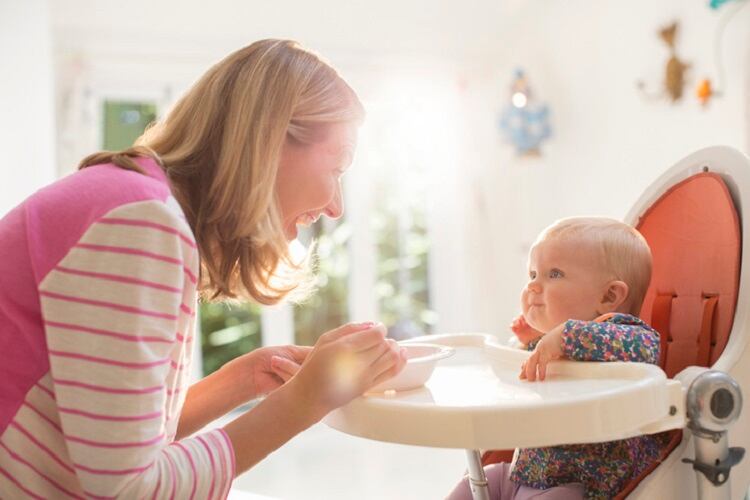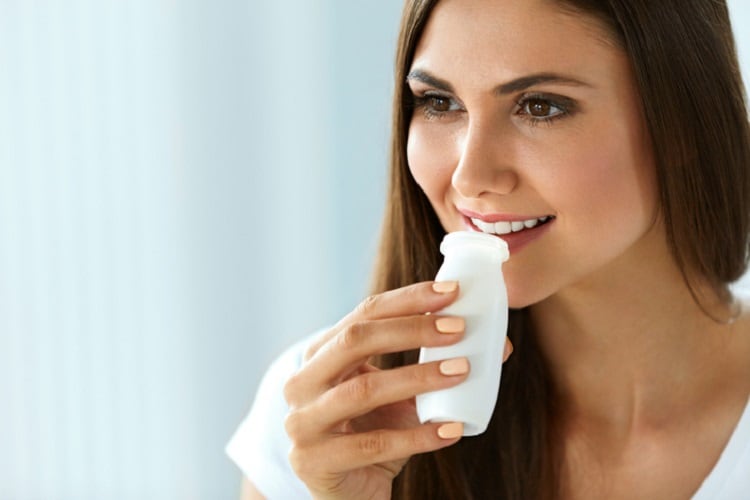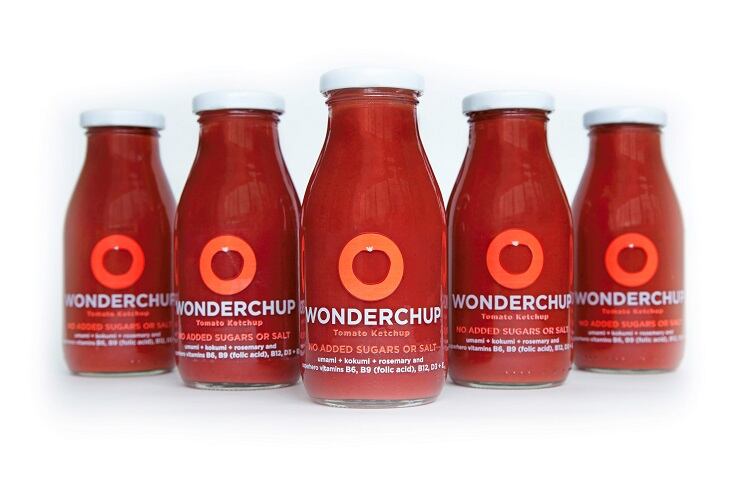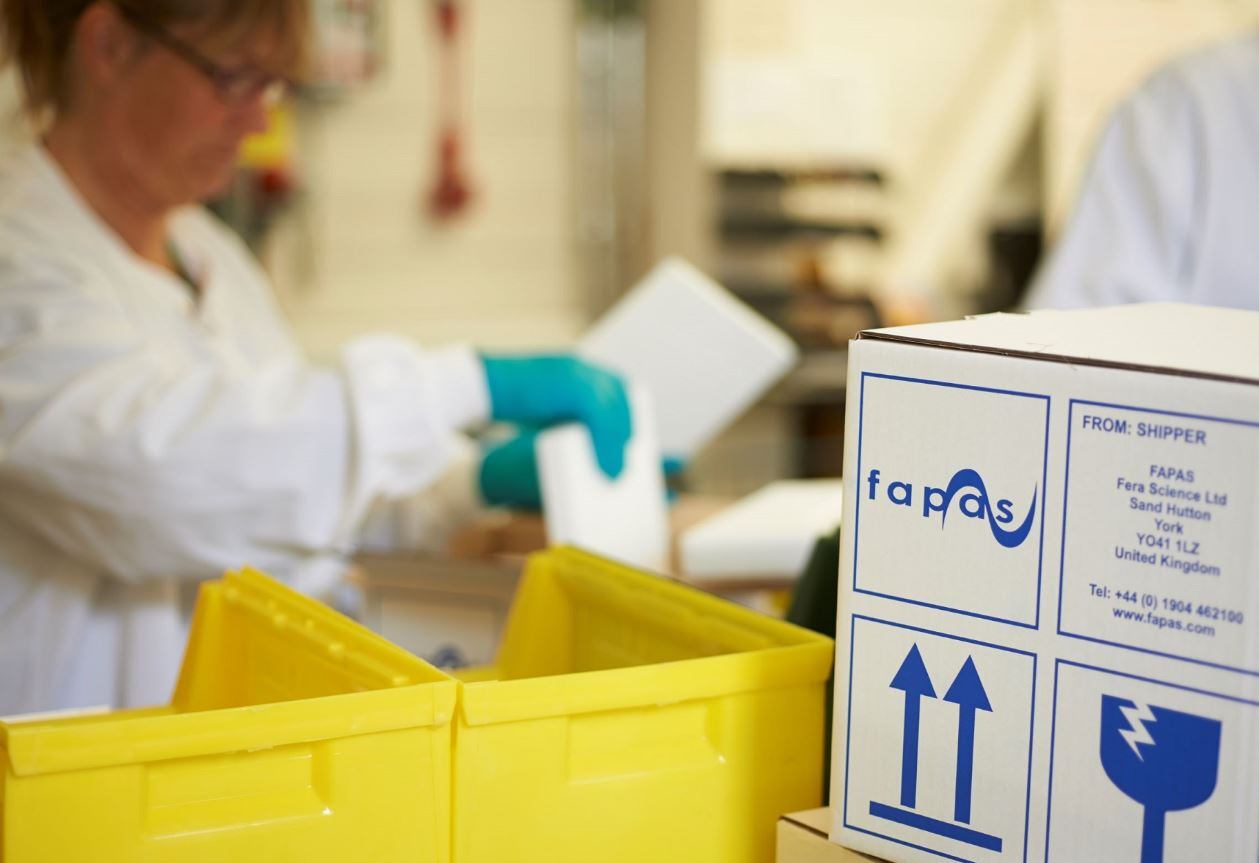UK-headquartered Ella’s Kitchen has developed 20 targets to achieve by 2024. Falling into five sectors – packing, ingredients, people, planet, and ‘be the change’ – the goals were published this week in a new report (available here).

“The Good Stuff We Do report brings together our dream, which is about doing business in an ethical and sustainable way, and our mission, which is to improve children's lives through developing healthy relationships with food,” Ella’s Kitchen marketing director Kim Gelling told FoodNavigator.
Five-year strategy
By 2024, Ella’s Kitchen hopes to achieve 100% widely recyclable or compostable packaging.
According to the report, 26% of Ella’s Kitchen packaging was widely recyclable this year. The firm says it is now working with partners to explore options for the remaining 74%.
The company is also pushing forward with its recycling programme ‘EllaCycle’ – an initiative created with post-consumer waste-focused TerraCycle in 2010. “’EllaCycle’ solves two challenges in one,” according to the report: “First, it provides a nationwide recycling collection solution for baby food pouches – a type of packaging which local councils don’t collect (yet). And secondly, it gives the pouches a second life by turning them into useful items like benches and fence posts.”
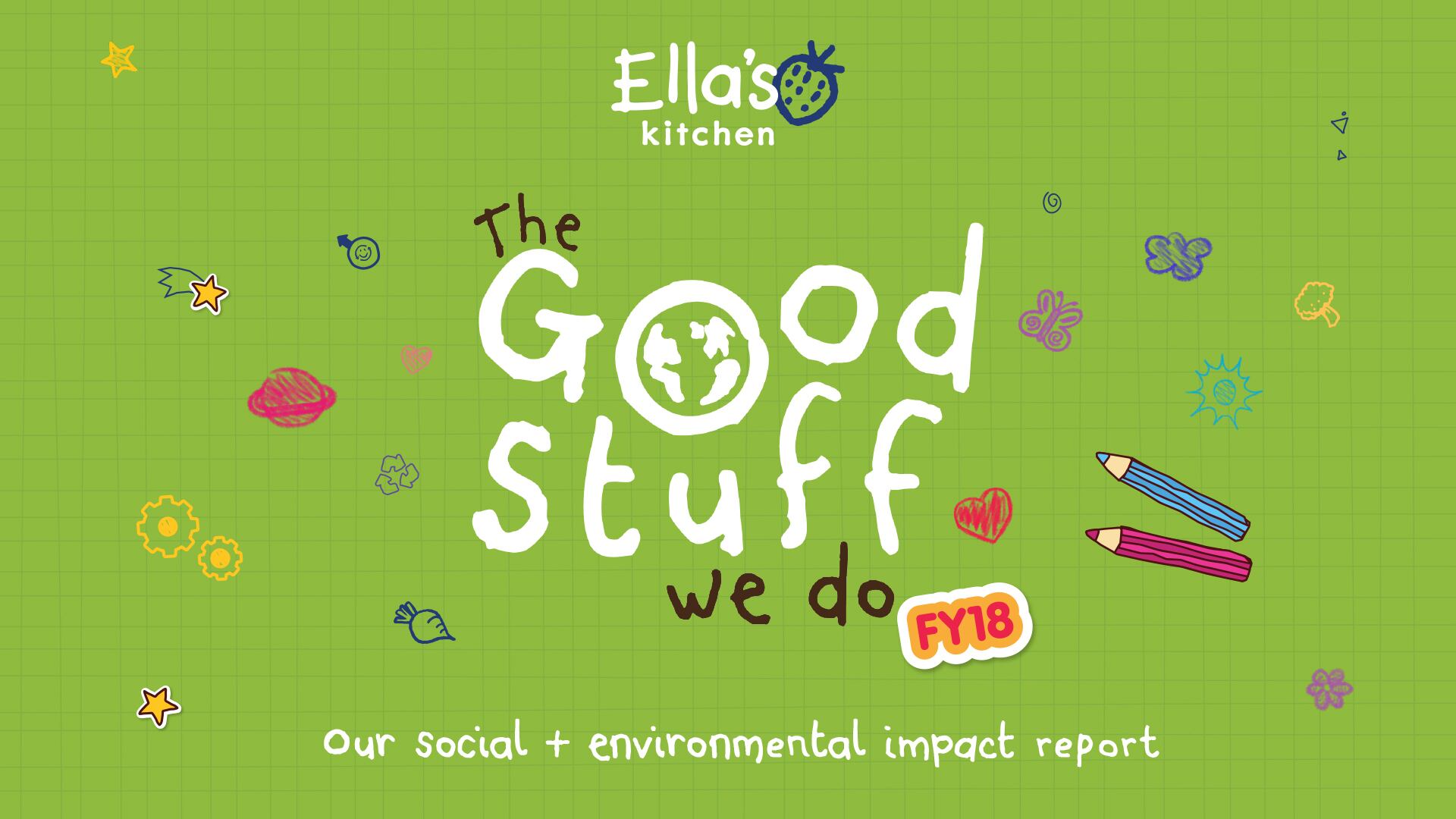
Ingredients is another major focus of Ella’s Kitchen’s five-year plan. This financial year, 97% of the firm’s products contained no palm oil – a commodity that when unsustainably cultivated has been associated with deforestation and biodiversity loss.
The company has pledged to cut out palm oil in the remaining 3% of its products by 2021. In addition, by June of next year, Ella’s Kitchen will have developed and launched its own sourcing standards for banana, mango and vanilla, and identified how it can provide additional support to organic farmers in it supply chain.
The firm has also committed to reducing waste with two pilot programmes expected to launch mid-2019. The initiatives aim to reduce process waste at its co-manufacturers. Ella’s Kitchen aspires to send zero waste to landfill from its own facilities and at key suppliers’ sites by June 2021, and aims to measure water use in its supply chain to help inform future water reduction strategies.
B Corp Certification
The launch of the Good Stuff We Do report coincides with B Corp month, to which Ella’s Kitchen prescribes since 2016.
Certified B Corporations are legally required to consider the impact of their decisions on the environment, suppliers, customers, workers and community.
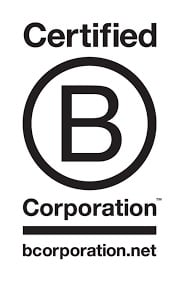
“We’re really proud to be a B Corp, as it means we are part of a growing global movement of companies who are committed to helping people take small steps for a better world,” said Gelling.
“The B Corp certification process involved a rigorous examination of our social and environmental standards and our commitment to upholding these is now formally embedded in the business. Our impact will be reviewed every time we re-certify, so being a B Corp will help to hold us to account and make sure that we have a roadmap for continuous improvement,” she explained.
In particular, the certification process has pinpointed in which areas employees felt the firm could improve. “One of the areas…[related to] local community,” said Gelling.
Employees at Ella’s Kitchen are offered one ‘mission day’ per year, which might involve volunteering at FareShare to help redistribute food to those in need, we were told. However, since receiving B Corporation Certification, Ella’s Kitchen has also implemented a MAD (Make a Difference) day into its employees’ calendar.
“[Employees] can help out in an area that they would like to most. For example, some people are governors of local schools, so they want to help out there. Others help out in community projects, which may mean working in a charity shop local to them,” explained Gelling. “It’s very much up to the individual as to what they want to do to make a difference in their local community.”
Having B Corp Certification means that Ella’s Kitchen has a bigger influence when it works with other organisations, she continued. “That’s why we use our position to influence other companies we work with, to take responsibility for their social and environmental impact too.”
Combatting sugar
Beyond its sustainability and community-based initiatives, Ella’s Kitchen is also looking to reduce sugar content across the board.
The UK government is increasingly urging food makers to reduce sugar content in processed foods, as recent figures reveal children in England are consuming more than double the recommended intake of sugar every year.
“Children have already exceeded the maximum recommended sugar intake for an 18 year old by the time they reach their tenth birthday”, said Public Health England (PHE) recently. Indeed, PHE has challenged the food industry to cut sugar in certain food categories by 20% by 2020.
Gelling told FoodNavigator that Ella’s Kitchen is already ahead of the game, with no product containing more than one third sugar, “which is lower than some products sold in the baby food aisle today.”
This relates to both its pouches for babies, and its snacks for toddlers. According to Gelling, competitors in this category often spray products with apple juice concentrate to impart sweetness.
“We use real fruit and vegetable powder [instead] and mix it into the rice, for example, when making rice cakes – to add that natural sweetener.”
Ella’s Kitchen has similarly strict targets for calories, fats, saturates and salt per serving which are based on evidence and advice from industry bodies such as the Scientific Advisory Committee for Nutrition, she added.


